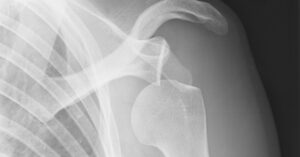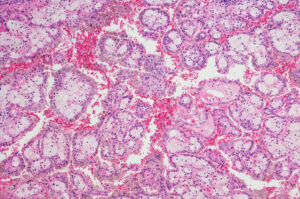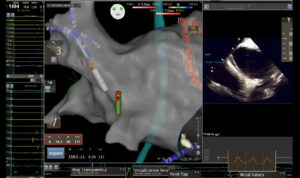Focusing on Outcomes of Treatment for Shoulder Instability
 Shoulder instability is a relatively common concern in athletes, especially among those who play contact sports such as football, basketball and rugby. This condition has a number of treatment options, including physical therapy and various surgical procedures, but much remains unclear about how to determine the best course for each patient.
Shoulder instability is a relatively common concern in athletes, especially among those who play contact sports such as football, basketball and rugby. This condition has a number of treatment options, including physical therapy and various surgical procedures, but much remains unclear about how to determine the best course for each patient.
 Obesity is linked to an increased risk of many diseases, but much remains unknown about the molecular mechanisms underlying this connection. In a new study from Brigham and Women’s Hospital and Harvard Medical School, investigators have found an unexpected role for cholesterol and its effects on the immune system in driving some of these obesity-linked diseases — in particular, with conditions characterized by autoimmunity.
Obesity is linked to an increased risk of many diseases, but much remains unknown about the molecular mechanisms underlying this connection. In a new study from Brigham and Women’s Hospital and Harvard Medical School, investigators have found an unexpected role for cholesterol and its effects on the immune system in driving some of these obesity-linked diseases — in particular, with conditions characterized by autoimmunity. Targeted therapy has had much less success in treating renal cell carcinoma than in treating many other kinds of cancer. Physician-scientists at Brigham and Women’s Hospital are working on several innovative approaches to address this shortfall.
Targeted therapy has had much less success in treating renal cell carcinoma than in treating many other kinds of cancer. Physician-scientists at Brigham and Women’s Hospital are working on several innovative approaches to address this shortfall. The COVID-19 pandemic has sparked a rapid shift to telemedicine across health care. Among the many challenges this new reality has created for geriatricians is how to adapt the comprehensive geriatric assessment (CGA) to a virtual delivery format.
The COVID-19 pandemic has sparked a rapid shift to telemedicine across health care. Among the many challenges this new reality has created for geriatricians is how to adapt the comprehensive geriatric assessment (CGA) to a virtual delivery format. For most chronic diseases, improvements in care over the past few decades have resulted from early interventions that prevent disease progression. Brigham and Women’s Hospital investigators, along with collaborators at other institutions around the world, are applying a similar approach to the early detection and prevention of Alzheimer’s disease (AD).
For most chronic diseases, improvements in care over the past few decades have resulted from early interventions that prevent disease progression. Brigham and Women’s Hospital investigators, along with collaborators at other institutions around the world, are applying a similar approach to the early detection and prevention of Alzheimer’s disease (AD).


 The COVID-19 pandemic has been challenging for almost everyone, and different populations have been hit in different ways. For people aged 18–30 years, it has had an outsized effect on mental health, especially in terms of depression, anxiety and post-traumatic stress disorder (PTSD).
The COVID-19 pandemic has been challenging for almost everyone, and different populations have been hit in different ways. For people aged 18–30 years, it has had an outsized effect on mental health, especially in terms of depression, anxiety and post-traumatic stress disorder (PTSD). Does rheumatoid arthritis (RA) raise the risk of developing type 2 diabetes mellitus (DM)? Previous epidemiologic studies have drawn varying conclusions. Now, a large population-based cohort study bolsters the case that RA in fact is not associated with a heightened risk.
Does rheumatoid arthritis (RA) raise the risk of developing type 2 diabetes mellitus (DM)? Previous epidemiologic studies have drawn varying conclusions. Now, a large population-based cohort study bolsters the case that RA in fact is not associated with a heightened risk.